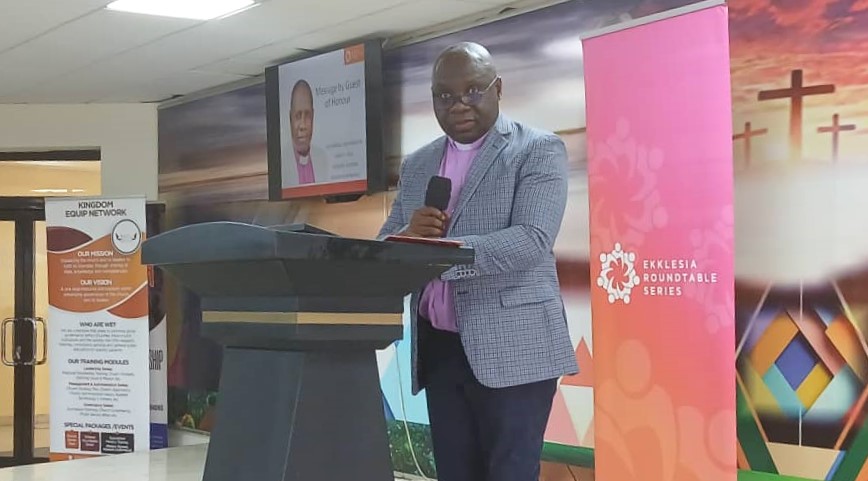By Eunice Hilda A. Mensah
Accra, July 24, GNA – The Most Reverend Dr Daniel Okoh, the President, Christian Association of Nigeria, has cautioned the Christian Leadership of Ghana to resist any governmental sponsorship in its quest and journey to form a strong ecumenical body.
The advice is to prevent the “notion” or “tagging” of the proposed body as a government agency and hence, an interference by government in its operations and voice.
The Archbishop gave the caution at this year’s 17th Ekklesia Roundtable Series in Accra on the theme: “Deepening and Strengthening Church Ecumenism in Ghana.”
Ecumenism is the principle or aim of promoting unity among the world’s Christian Churches.
Archbishop Okoh reiterated: “Let’s not allow politicians to come and use this platform for unholy things and selfish gains. We should not be a government structure. If we are properly structured, government will come and look for us, the politicians will come and look for us.”

As Ghana was enjoying peace, he asked the leadership of the Christian community to take advantage to become one strong body “at all cost”.
“I’m happy that a country like Ghana has not had a major political Conflict. It has had its setbacks but not to the point of civil war.
“Ghana is enjoying relatively peace at the West African sub-region. In Ghana, we have church leaders that are ecumenical in nature, but we do not know what tomorrow will look like. We need to take the opportunity now and not pretend like everything is okay to relax. Our Lord Jesus Christ knew the challenges that the church will face and that we could only conquer it by our unity. Our unity must be visible for the world to see and know.”
Archbishop Okoh added: “I don’t pray for Ghana to have a major incidence before Christians will come together to have an emergency meeting. We should remember that in the world of today, no one can say, I don’t need the other.
“I pray for Ghana not to get to a point where we have religious conflict. In Nigeria, we experience it and I don’t pray for any country to experience it.”
The Christian community should pray and work for a strong moral leadership, he said, if they wanted to avoid a major setback.
In choosing leaders for the proposed Ecumenical body, Rev. Okoh, also the Chairman of the Organisation of African Instituted Churches, asked the Christian community to consider credibility, competence, level-headedness and capability, with self-dignity and willingness to reserve the dignity of others.
He suggested that they avoided elections to be able to settle on well qualified leaders.
“The leadership must be rotated and not necessarily based on elections because elections divide an organisation and takes away the focus of that organisation at the end of the tenure of the person,” he said.
An ecumenical body, he said, was not a super church and therefore should not be run in a way where after the leader speaks, no one has the ability to make any other suggestion.
“We must be patient, bold, and not timid and drop our ego. These are things I’ve seen in churches. The ones who feel they have arrived will feel like the others are wasting their time.
“I want to plead and appeal to the eminent Church leaders here who have access to such churches or leaders to bring forth those who are not on the table. At first Bishops or Reverends may not come but find a way to get them on board,” he added.
Rev. Okoh explained that Ecumenism did not mean uniformity but acknowledging their diversity with a daily commitment to work together in fellowship.
“Let me acknowledge that this work can be one step forward, two steps backward and three steps forward but what matters is our unity,” he added.
Reverend Dr Casely B. Essamuah, the Secretary of Global Christian forum, said pursuit of spiritual unity, ecumenical unity was a gift God had granted humanity to build bridges for greater cooperation and asked the Christian community to celebrate what united them more and drove away from what divided them.
He asked them to build trust for a strong foundation for the step they were embarking on, saying: “The stronger the bridge of trust, the more truth, you can carry across.”
The Ekklesia Roundtable Series is one of the core activities of the Kingdom Equip Network, a Christian non-profit network dedicated to fostering effective governance within churches, para-church institutions and broader society.
Among other objectives, the conference will enable participants to jointly develop strategies and resources for defending the faith against theological distortions, secularism and religious extremism.
GNA